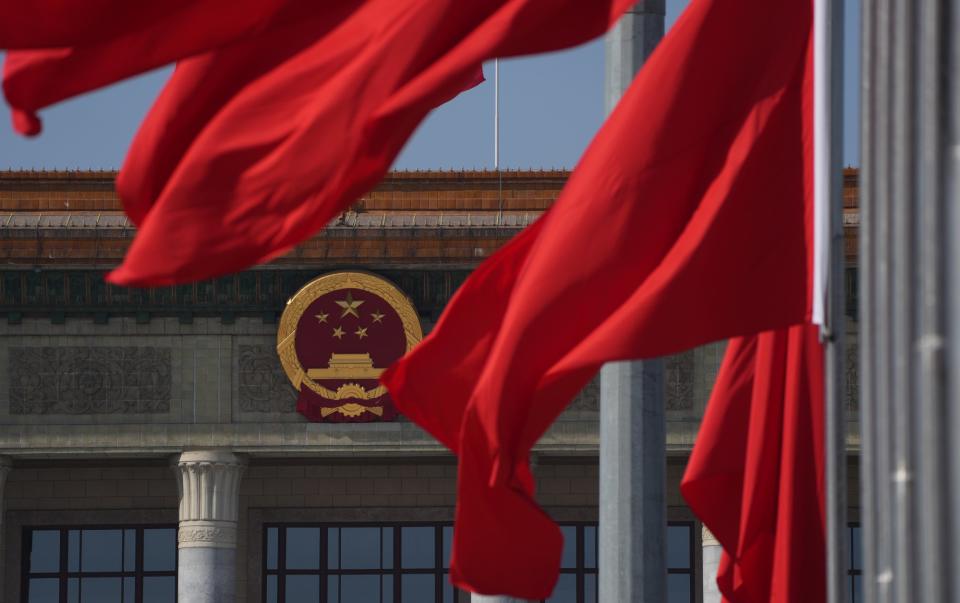South China Morning Post
Fri, September 1, 2023
Beijing has made the unprecedented decision to allow some cases against foreign states in Chinese courts, a move that will align its take on "foreign state immunity" with mainstream Western practices.
China has long taken the stance that states and their property are immune from the jurisdiction of the courts of other states. Previously, it has never allowed a case where a foreign state or government was sued, nor has it allowed any claim involving a foreign state or their property.
But the Foreign State Immunity Law, adopted by the Standing Committee of the National People's Congress on Friday, will remove such immunity from next year.
Legal experts said the "long overdue" law could provide better legal protection for private businesses involved in international trade as China works to restore business confidence.
From January 1, 2024, sovereign states or entities authorised to act on their behalf that are involved in certain territorial infringements or commercial activities will no longer be immune from prosecution in China.
Commercial activity was defined in the draft law as "any transaction or investment involving goods or services or other act of a commercial nature that does not constitute an exercise of sovereign authority".
"Loans" were added to the list of activities after the deliberation, according to the state-run newspaper Legal Daily.
The law aims to "improve China's foreign state immunity system" and "clarify the jurisdiction of the courts of the People's Republic of China over civil cases involving foreign states and their property".
The standing committee also amended the Civil Procedure Law in the same meeting, allowing embassies to collect evidence in foreign countries if a plaintiff before a Chinese court needs to seek evidence abroad and the court finds it necessary.
The amendment will also take effect on January 1 and will be exercised according to domestic laws. The amendment is conducive to "better safeguarding China's sovereignty, security and development interests", Xinhua said.
"The Foreign State Immunity Law generally brings China in line with the approach of most other states," said James D Fry, an associate professor of law at the University of Hong Kong.
"For example, international law generally does not recognise immunity for torts or delicts [infringements or violations of the law] committed in the host state, and Article 9 of the draft law makes that express," he said.
While the bill did not specify, he expected the law would also apply to Hong Kong, following the 2011 Congo judgment that the city would follow the China approach on state immunity issues.
"This change will make it easier to enforce arbitration awards in Hong Kong, among other things, which should help strengthen Hong Kong's reputation as a hub for dispute resolution."
The immunity of states from the jurisdiction of foreign domestic courts has been a long-standing and widely accepted principle of international law.
After World War II, most sovereign countries, including the United States and Britain, enacted their own laws to allow some exceptions for better legal protection to businesses engaging in international transactions - changing their approach from "absolute immunity" to "restrictive immunity".
China and Russia were the two main holdouts from the shift - which has meant suing a foreign state in domestic courts has been impossible.
"For many years, China has been reluctant to abandon the traditional absolute theory for fear that it may expose China to many lawsuits in foreign courts," said Bing Ling, a Chinese law professor at the University of Sydney.
But the concern was "misconceived" because whatever theory China upholds, foreign courts could always apply their own laws of restrictive immunity in lawsuits against China, he said.
China signed the United Nations Convention on Jurisdictional Immunities of States and Their Property in 2005 - which set out the circumstances under which a foreign state should not be immune from the jurisdiction of another state - but has yet to ratify it.

The Standing Committee of the National People's Congress passed the Foreign State Immunity Law which will bring China more in line with Western legal practices.
After a US state filed a suit in federal court against China in 2020 for its alleged responsibility for the human and economic losses caused by Covid-19, more than 35 Chinese lawmakers proposed looking into a law on state immunity as they thought the absence of such legislation put China at a disadvantage when dealing with foreign litigation.
The foreign ministry then drafted the bill which was first deliberated by the standing committee in December.
"With China's engagement in international commerce, especially under the Belt and Road Initiative, Chinese companies have long required the same protection afforded by the restrictive immunity doctrine," Ling said.
He added that the final passage of the Foreign State Immunity Law "sends a somewhat different message" as it will see Chinese law conform "with the mainstream practice of Western countries".
China has recently expanded its legal tools to protect its national interest and security, notably the enactment of the Foreign Relations Law and amendments to the Counter-espionage Law.
Ryan Mitchell, an associate professor of law at the Chinese University of Hong Kong, said while the new law is not entirely motivated by competition betweeen China and the US, it could create room for "sanctions-like techniques against foreign states or their officials".
"For instance, denying immunity for damage to property in the PRC could be interpreted broadly to justify some types of lawsuits or fines," he said.
Copyright (c) 2023. South China Morning Post Publishers Ltd. All rights reserved.
No comments:
Post a Comment